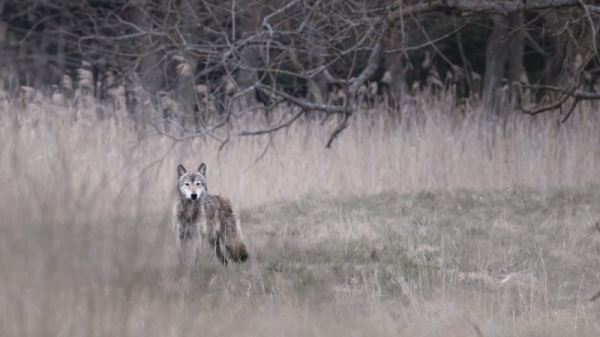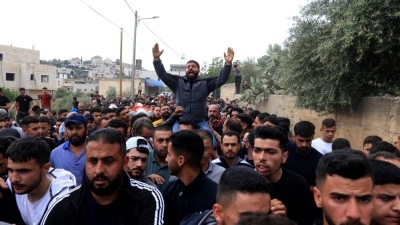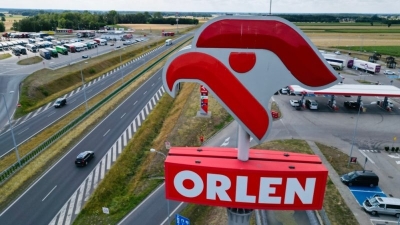Dolly’s revenge, European Commission proposes to drop wolves’ protection status

The European Commission’s proposal to drop wolves’ protection status under the Bern Convention from ‘strictly protected species’ to ‘protected species’ came as a blow to conservation advocates fighting the magnus malus lupus’ corner in Europe.
The proposal is not a complete surprise, given it arrives in the wake of the now infamous death of Ursula von der Leyen’s beloved pony ‘Dolly’ who died from a wolf attack in 2022.
It would seem that everyone agrees, that the apex predator has its place in the European ecosystem, but in the run-up to the European elections, is the wolf debate bait to get the farmer’s vote?
“Using the wolf as a kind of political pawn, in order to play the game of securing votes – the wolf is truly the victim in this, ” Dr Joanna Swabe, senior director of public affairs for Humane Society International/Europe (HIS).
Political divide
“It’s become a real political hot potato. Seeking a lowering of the protected status of wolves and bears in the Habitats Directive has become one of those things that has been repeatedly forced onto the political agenda, and it’s even been included in the EPP manifesto for the European elections,” she says.
Swabe doesn’t believe that a change in the protection status will solve the problems in the farming industry, “It is essentially like sticking a small Band-Aid on a gaping wound given the broader problems that are faced by the industry.”
The protection measures issued as advice to farmers on keeping their animals safe include the use of electric fencing, shepherding, and dogs to guard the flock. Some of these methods come as second nature to farmers who have always lived with the presence of wolves, in Romania for example. But wolves are posing a practical problem, and expense, for those used to grazing their herds with free reign, but state funding is helping.
“Under the rules for state aid for agricultural and rural development, farmers have already been able to get 100% compensation for any damages caused by depredation from predators, and remuneration for mitigation measures implemented – the pressure should be on the member states to efficiently disburse those funds,” explains Swabe.
Costly protection
Italian MEP Herbert Dorfmann, the AGRI coordinator of the European People’s Party (EPP), hails from the alpine region where he says that grazing is becoming even more of a challenge for his local farmers.
“We had two pilot projects in my region last year, observing all the measures – dogs, fences and whatever, and there were no more attacks, but the cost of these measures was €130 per sheep for the summer – more or less more expensive than the value of the whole sheep,” he explained.
“A farmer is an entrepreneur. Why should a farmer do an activity based on a continuous loss, because it’s clear that he, or she, cannot spend €130 to keep a sheep for three months on an Alpine pasture? The result will be, as we are already seeing, at least in my region, farmers leaving the occupation,” he says.
Aside from the costs of the measures farmers need to take, he said they are not ideal solutions in The Alps. The threat of an attack by dogs on passers-by or the restrictions imposed by electric fencing, on walkers, is not conducive to traditional tourism in the region.
Letter from farmers
In February, farmers groups across Europe sent a letter to Ursula von der Leyen outlining that they were “unanimously convinced that the current problems of grazing livestock with the spread of the wolf cannot be solved with herd protection measures alone.”
Stefan Meitinger and Julia Dost from the German Farmers’ Association, one of the groups to sign the letter, are quick to explain that the aim of a change in protection is not to exterminate the wolf.
“The topic is very emotional and complicated but we need immediate actions because, from year to year, the problem grows and in the end, we’ll lose farmers with animals in regions where we want them and that’s a real problem,” says Meitinger.
They have heard from farmers who say the measures taken are not working, wolf packs appear to be outsmarting dogs, wolves are getting clever with electric fencing and the licences to kill, which are allowed under the current protection, are stopped in the courts by activist groups.
“We need a fair discussion because at the moment it is farmers on one side and environmental activists on the other and nothing in between,” Meitinger says.
The topic of wolf protection could be seen as an easy target for some politicians if the farmers and the activists are pitted against each other, for some it is such an emotive subject, but in some cases, the arguments don’t quite stand up.
A poll conducted by Savanta last year proved that large carnivores, such as wolves were popular with rural dwellers with 68% of people surveyed, from 10 member states, saying they think large carnivores should remain ‘strictly protected’.
To a favourable status
“[Lowering the protection status] is not helping to protect livestock, because if you allow the hunting of wolves, you give, indirectly, the message that investing in livestock protection is not needed anymore. And the wolves that are around will still continue to kill livestock if they are given the chance,” says Sabien Leemans, senior biodiversity policy officer, at WWF European Policy Office.
Wolf populations across Europe have not yet met ‘favourable conservation status’ in six of the seven biogeographical regions of Europe. The latest WWF data shows that only the Alpine Region has a favourable conservation status.
The fear is that if hunting of wolves is allowed again and the quota is too high it would decimate the population again, quickly and of course, they were brought back for a reason.
Wolves have an impact on the population and behaviours of deer and wild boar and they have even been credited with potentially decreasing the spread of African swine fever, something that pig farmers might see as a positive.
[By Fiona Alston I Edited by Brian Maguire | Euractiv’s Advocacy Lab ]
Read more with Euractiv




